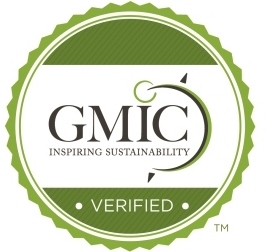Global Experience Specialists Earns Environmental Sustainability Certification

Sustainability in the trade show industry is moving to the forefront again after it stalled during the recession, and Global Experience Specialists recently took a big leap forward to become the first general service contractor to be certified to an international sustainability standard for the meetings and event industry.
GES exceeded Level One and achieved Level Two certification to the Accepted Practices EXchange/American Society for Testing and Materials (APEX /ASTM) Environmentally Sustainable Event Standards pertaining to the Evaluation and Selection of Exhibits for Environmentally Sustainable Meetings, Events, Trade Shows, and Conferences.
GES has a history of achieving sustainability standards; its operations in the United Kingdom are ISO 20121 certified, which is a complex and challenging international standard accreditation that takes a management systems approach to running more sustainable events.
”We are proud to be the first and only general service contractor to be certified to the APEX/ASTM international sustainability standard,” said GES President Steve Moster.
He added, “GES achieved Level Two certification at every facility across the U.S. that services exhibitions and events, ensuring that no matter what city you hold an event or are exhibiting, GES has a certified location with the best resources and practices to help you achieve your sustainability goals.”
David Dubois, president and CEO, of International Association of Exhibitions and Events (IAEE), said “This is great news for GES and for the event industry.”
He added, “The general services contractor (GSC) is the central player in producing a sustainable event as it touches multiple areas of an event. We hope the GES certification will encourage others to follow suit.”
The APEX/ASTM Exhibit Standard delineates the procedural requirements for exhibits and exhibitions for meetings, events, trade shows or conferences. The standard specifies performance criteria for staff management, communications, waste management, energy, air quality, water, procurement and community partners.
The standards were created in partnership with ASTM International, an American National Standards Institute accredited standards development organization.
Connie Bergeron, CMP, president, Green Meeting and Industry Council (GMIC), the non-profit professional meetings association that led the development of the APEX/ASTM Sustainable Meeting Standards, added, “ Responsible environmental and social practices in the meeting industry are a global concern. We are delighted that GES has earned this prestigious certification and celebrate their adoption of the industry standard in this sector. ”
The GMIC 2015 Sustainable Meetings Conference kicks off June 17-19 at the Westin Peachtree Plaza in Atlanta
iCompli, a division of BPA Worldwide, a nonprofit international auditing organization headquartered in Shelton, Connecticut developed the certification protocols for the APEX/ASTM standards and performed the independent third party certification of GES’ compliance with Evaluation and Selection of Exhibits for Environmentally Sustainable Meetings, Events, Trade Shows, and Conferences.
Glenn Hansen, CEO of BPA Worldwide, said, “Our certification of the event sustainability standards driven by GMIC and now adopted by GES continues our long-standing partnership with the event industry to promote transparency.”
GES partnered with the University of San Francisco Department of Hospitality Management to review its sustainable practices and ensure its facilities were operating as sustainable as possible.


Add new comment